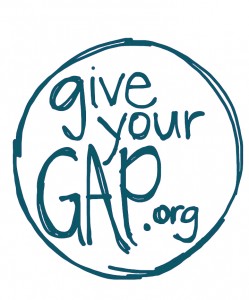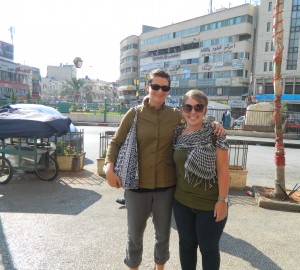 Name: Megan Leatherman
Name: Megan Leatherman
School: University of Oregon
Type of Work: Community Development, Human Rights
Region: Middle East
Length of stay: 6 months – 1 year
Tell us about the organization you work for and what you do for them.
I work for Kayan-Feminist Organization, which is a non-profit, politically unaffiliated Arab women’s organization in Israel. I volunteered with Kayan in 2009, and worked primarily on public relations and outreach. After I began working on my Master’s degree in Conflict Resolution, I teamed up with Kayan again to work on developing a program that empowers women to do peacebuilding work within Arab communities in Israel. In addition to helping to develop this program, I work on fundraising and development. An average day is usually spent at the office editing grant proposals and reports, or meeting with colleagues to talk about the upcoming Conflict Transformation training that we are planning.
Share a favorite memory.
One thing that has stuck out to me in my second time with Kayan was when I went to a meeting of the Forum of Arab Women Leaders, which is a network of community organizers that Kayan supports and facilitates. This was my first time out “in the field” since I’d come back, and it was really touching to see familiar faces, some of whom even remembered me. It was as if I was being transported back two years, except that the Forum has grown and is becoming increasingly sophisticated in its research and interventions.
What have you learned from your experience? How has it affected your long-term goals?
Well, obviously I’ve learned more than I’d ever imagined about issues of women and conflict transformation, fundraising, and development. More generally, however, I’ve learned that it takes a very long time as a volunteer to actually contribute in a meaningful way – unless you are with an organization for a significant amount of time, the gift is primarily theirs to give, not yours. This idea that Americans can descend upon international organizations and improve them is largely unfounded, and I think it’s important to remain humble in the work that we do. As far as my long-term goals, they have totally shifted since I came back to Kayan this summer. When I arrived, I wanted to work for international women’s organizations in conflict zones. After getting more involved in the community-level work that Kayan does, I realized that I actually want to give back in that way to my own community in the Pacific Northwest. The grassroots work that this staff does is immensely powerful, and I feel convicted to work to improve the quality of life for disadvantaged members of my community in America.
What is the most challenging part of your job?
The most challenging part of my job has been keeping up with all the various aspects that go into program planning: donors, grant proposals, logical frameworks, activity planning, target group, etc. Having never done this before, I have had to learn quickly what it takes to orchestrate programming in an organization like Kayan.
Do you have any advice for prospective gappers?
I would suggest that gappers learn as much as they can about the context they will be working in, remain humble and openminded, and connect as much as they can with the people that they are working with.

